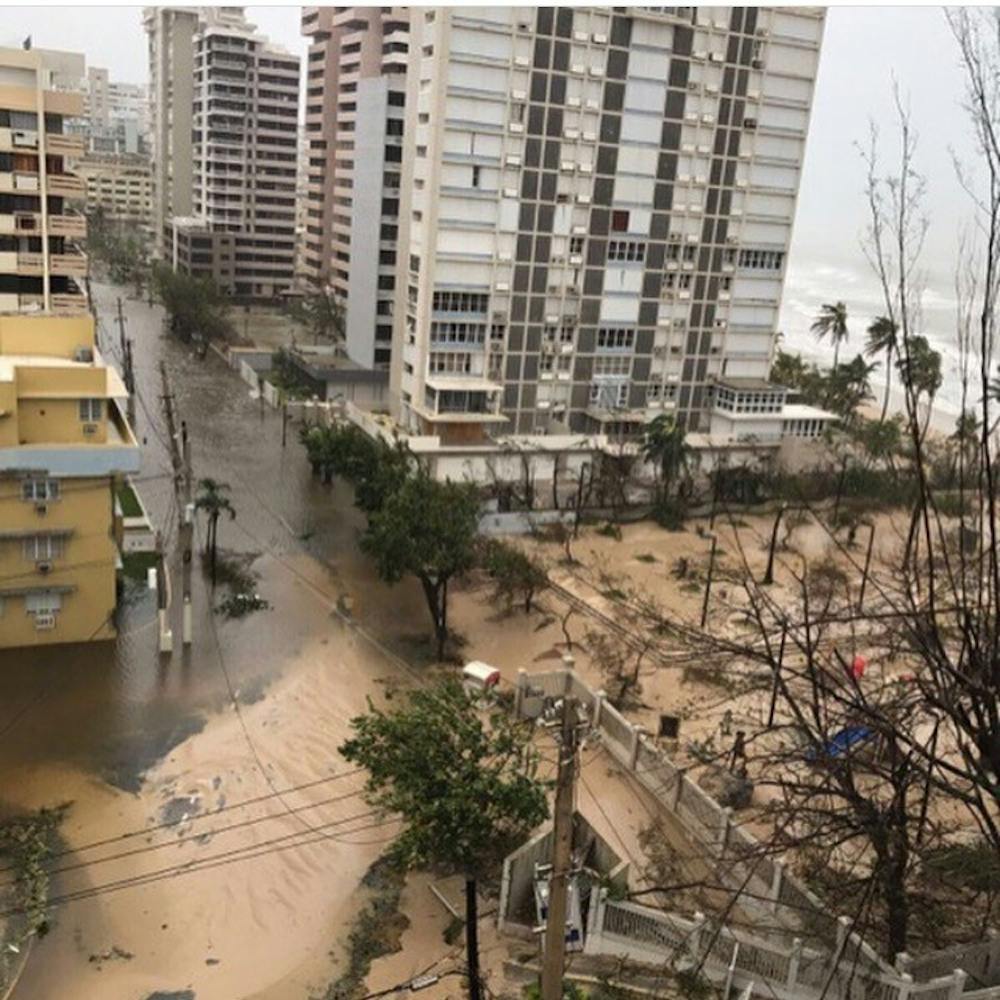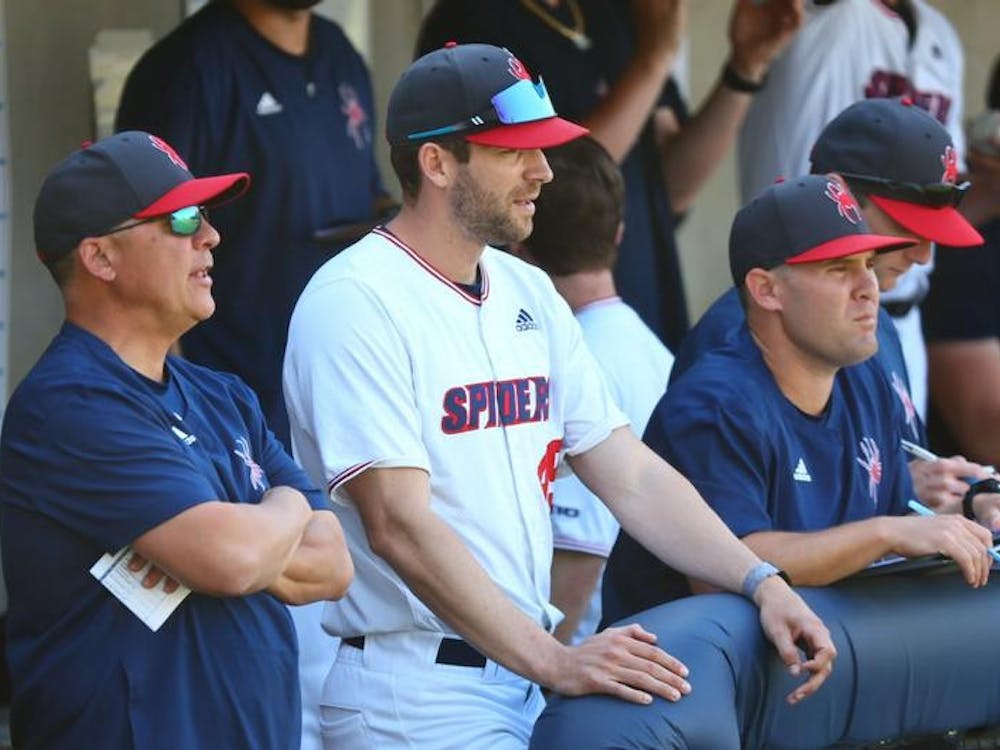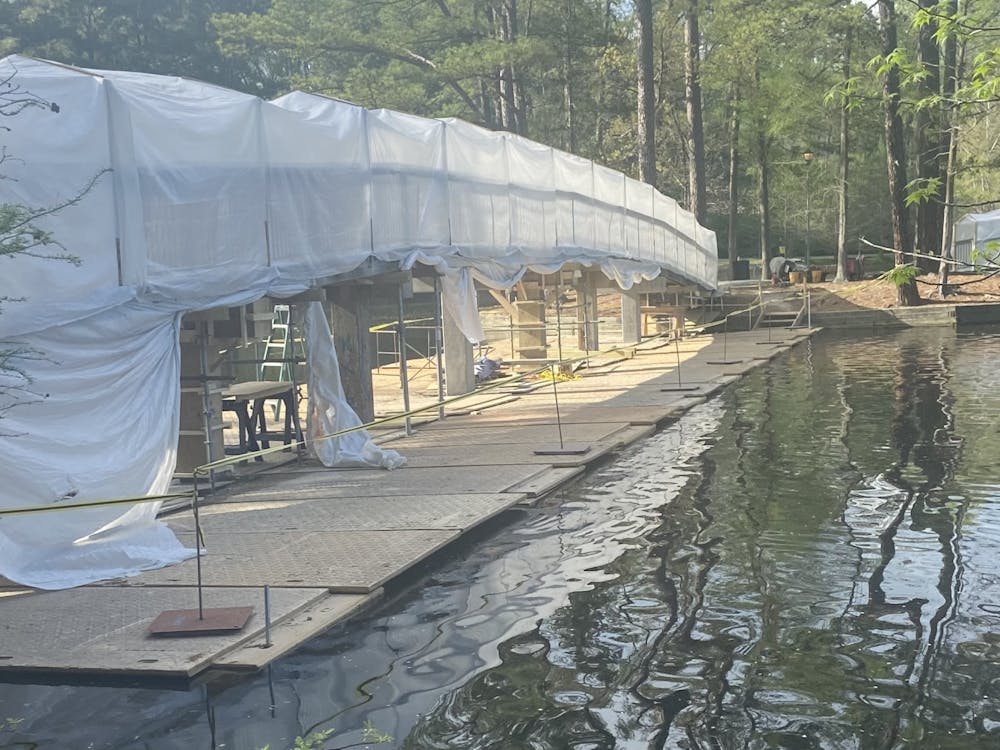Following a nearly campus-wide power outage last week, the University of Richmond offered cots in the Westhampton Deanery to students from affected residence halls. This outage, while just a temporary inconvenience, serves as a reminder of the brutal realities faced by thousands of people in the United States and the Caribbean as a result of Hurricanes Harvey, Irma and Maria.
Some of those people also call the University of Richmond their home.
As students moved back onto campus for the fall semester, the buzz about Hurricane Harvey was just beginning. Predictions regarding the storm’s severity waxed and waned before the storm hit, much like the emotions and reactions of students from the affected areas.
“At first I just kind of brushed it off,” Sarah Jacobson WC ‘19, a Houston, Texas native, said. “We'd had so many of these before. I've lived through other hurricanes and never had to evacuate.”
These sentiments changed when Jacobson heard more from her parents and Houston news sources about the storm's severity, comparing it to Hurricane Katrina.
“That’s when I started feeling pretty helpless,” Jacobson said. “I just knew there was nothing I could do.”
As the storm started to surge, homes of Jacobson's family members began to flood. She realized the possibility of her own home flooding, despite it being “hurricane proof.”
Jacobson’s home was flooded by over four feet of water following the second wave of flooding in Houston.

This happened when reservoirs were opened in order to preserve downtown Houston, where important infrastructure exists. Her parents and neighbors were rescued by boat after the flood and were able to take some important items they had saved from the rising waters.
Enjoy what you're reading?
Signup for our newsletter
“The community really pulled together,” Jacobson said. “I just never really thought this would happen to my family, though. It’s going to be over a year until we have our home back.”
Another Richmond student was preparing to leave for a semester in Spain while Harvey formed. Susie Black, WC ‘19, was supposed to be at home in Houston when the storm hit, but her family made arrangements for her to leave before Harvey struck.
“I ended up taking one of the last flights out of Houston,” Black said. “It was weird not being there when it was all happening, and it’s hard now knowing I can’t physically be there to help.”
Although Black’s home was not compromised by the storm, her parents became involved in the relief efforts following Harvey.
“I was really proud to see my parents and family friends coming together to help even though our house was okay,” Black said. “It’s important for people to remember that it’s an ongoing battle to recover.”

As relief efforts began in Houston, another hurricane started forming in the Caribbean, devastating the British Virgin Islands, among many others.
Allie Davidge, WC ‘20, although not from the BVI, had spent many summers there working and had developed a strong connection to the island community. Davidge said that when BVI residents had heard that the hurricane was going to hit them directly, they created a Facebook page to update people who cared but were not there.
“When I was added there were only about 200 people on the page,” Davidge said. “Now there’s 32,000.”
When looking through the Facebook updates, Davidge was struck by how the color of the islands changed -- it would take many years to return the islands to their original beauty.
“Every single tree and green living thing has been killed,” Davidge said. “The Google map images of the luscious, beautiful islands went from being green to brown.”
Davidge added that the island's infrastructure had been swept away as well. Buildings she had worked in daily were completely gone.
But as she received these horrifying updates, Davidge admired the strength of the community.
“These people have literally lost everything,” Davidge said. “But they still have such a sense of community and have started rebuilding."
Next in Irma's path of destruction was Florida. Gov. Rick Scott declared a state of emergency due to the storm's severity, encouraging residents to evacuate.
When Jordan Schulefand, RC ‘21, heard that his parents had evacuated their homes near Fort Lauderdale and Palm Beach, he became concerned about how Irma would affect those areas.
“I really wanted to go home and be with my family,” Schulefand said. “It sucked not being able to.”
Originally, Schulefand thought his mother’s home would be more severely damaged since it was near the beach, but with the shift in the path of the storm, the hurricane hit both of his parents' homes, in Fort Lauderdale and Palm Beach.
“My mom didn’t have power for a week and a half,” Schulefand said. “And some of my friends' houses got destroyed.”
Meanwhile in Miami, Gabi Telepman, WC ‘20, heard from her parents that Irma was going to hit their home directly and that they had been directed to evacuate.
Before the storm hit, her parents sent pictures of their home to her for insurance purposes, in case of hurricane damage.
“That was scary to me,” Telepman said. “It made the fact that my house could get destroyed real.”
During the storm, it became increasingly difficult to communicate with her parents and stay informed about their safety.
The Telepmans' home lost power for six days but was otherwise spared by the storm, unlike many other neighborhoods in Miami.
Another Richmond student from Miami, Emily Kirsner, WC ‘18, shared her feelings about Irma.

“Honestly, I was surprised when I heard about Irma. Being from Miami, I was kind of desensitized to hurricanes,” Kirsner said. “I wanted my family to leave, but I really didn’t think there would be anything.”
Kirsner's family evacuated but soon received photos from neighbors who hadn’t. A tree fell on their home, destroying part of it.
“Since I was here, it almost didn’t feel real to me until I got the phone call about our house,” Kirsner said. “But I was happy to know that everyone I was close to left and were safe.”
Most recently, Puerto Rico was struck with yet another hurricane, Hurricane Maria. Richmond student Sophia Shapiro, WC ‘21, is from San Juan, the capital.
Shapiro said that the hurricane affected the entire island, leaving it without water, electricity, and many of the trees.
A curfew has been put in place to deter crime, particularly mugging and stealing, which people have been doing in order to provide for their families. This information comes from Shapiro’s mother, who she was just recently able to contact, since most phone lines were down.
“None of my family had ever experienced a hurricane this bad,” Shapiro said. “Maria just really destroyed everything.”

Many of her friends from home have made plans to transfer schools since there is no telling when the schools will be able to reopen. Shapiro said there isn’t enough talk out about what is happening in Puerto Rico -- so many people are either uninformed or misinformed.
“You wouldn’t want to go home in a time of disaster,” Shapiro said. “But I just want to be with my family.”
The devastation that these hurricanes have caused is not something that can be fixed overnight, nor in the next week, month, or year.
Jacobson’s home will take over a year to repair, infrastructure in all affected cities could take years to rebuild, disease may become a problem in some places, and ecosystems devastated by the hurricanes will take an indefinite amount of time to restore.
“Be sensitive,” Jacobson said. “I think people have a tendency to not realize or think about the situation. It’s going to be an ongoing process for my family and my entire city both physically and emotionally.”
Contact features writer Sydney Lake at sydney.lake@richmond.edu.
Support independent student media
You can make a tax-deductible donation by clicking the button below, which takes you to our secure PayPal account. The page is set up to receive contributions in whatever amount you designate. We look forward to using the money we raise to further our mission of providing honest and accurate information to students, faculty, staff, alumni and others in the general public.
Donate Now



